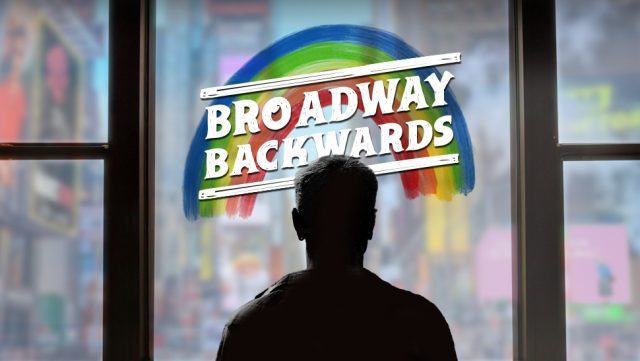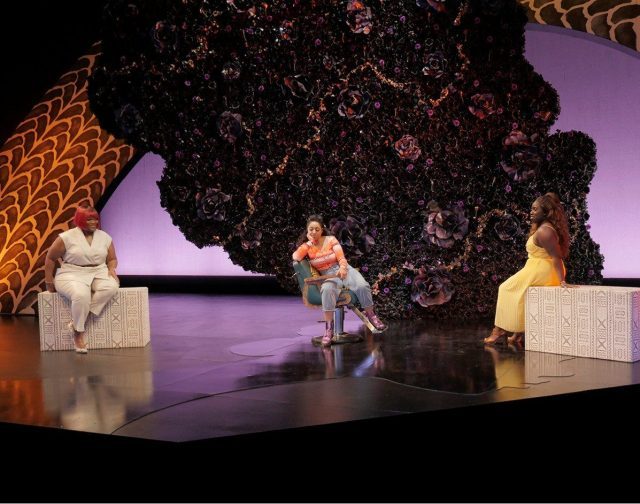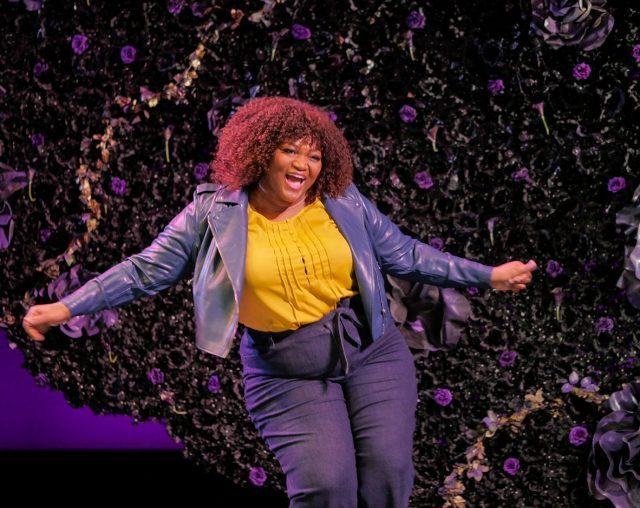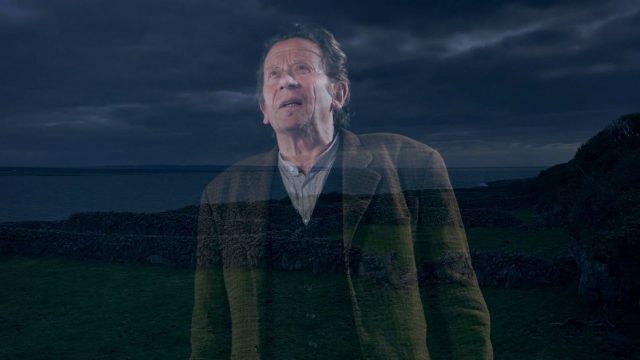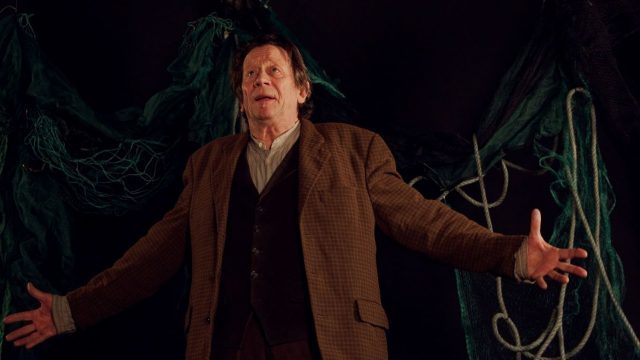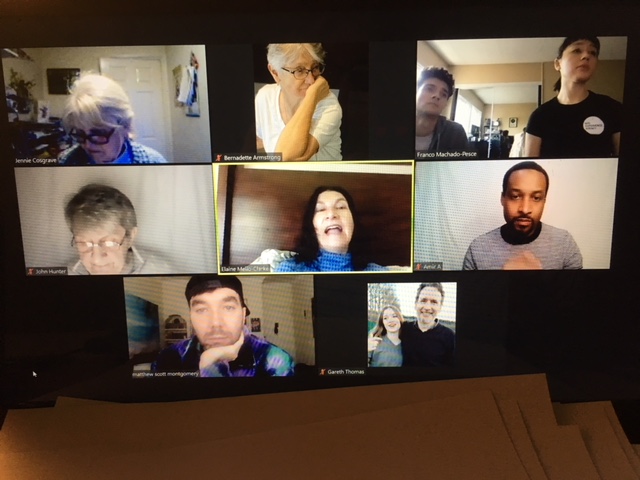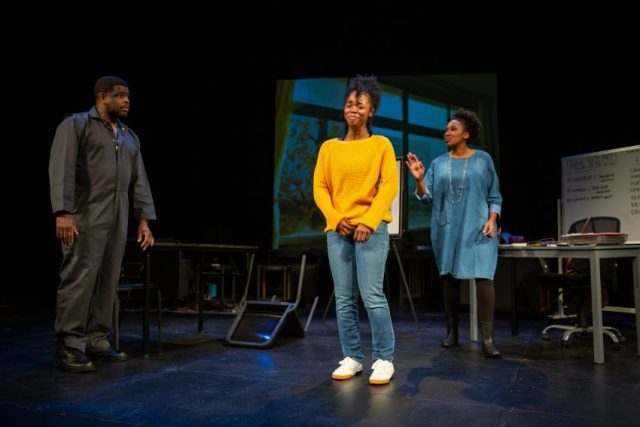
New play explores sexual violence, toxic masculinity, and systemic abuse (photo copyright Jessica Palopoli 2021)
San Francisco Playhouse / Lorraine Hansberry Theatre online
Through April 3, $15-$100
www.sfplayhouse.org
www.lhtsf.org/shows
Trauma and PTSD hover over all four characters in the world premiere of Erika Dickerson-Despenza’s searing drama [hieroglyph], streaming in a filmed, fully staged production from San Francisco Playhouse and Lorraine Hansberry Theatre through April 3. Inspired by the true story of the kidnapping and rape of nine-year-old Shatoya Currie, known as Girl X, [hieroglyph] stars Jamella Cross as Davis Despenza Hayes, a thirteen-year-old girl who has moved to Chicago with her hardworking father, Ernest (Khary L. Moye), two months after being displaced by Hurricane Katrina in New Orleans, where her mother stayed behind. Davis is hiding a dark secret that slowly emerges as she excels in art class, taught by Ms. T. (Safiya Fredericks), who harbors a secret of her own. Meanwhile, Davis’s best friend, Leah (Anna Marie Sharpe), is more open and positive about life, until something goes wrong.
[Hieroglyph], the real title of which is an inarticulate symbol, is beautifully written by Susan Smith Blackburn Prize–finalist Dickerson-Despenza (ocean’s lip/heaven’s shore, shadow/land) and intimately directed by Lorraine Hansberry Theatre artistic director Margo Hall (Barbecue, Red Velvet) on SFP artistic director Bill English’s circular stage, which revolves from the classroom to Davis’s bedroom to the Hayes living room. A screen in the back shows Davis’s compelling drawings, works by Harlem Renaissance painter Ernest Crichlow, abstract videos of Davis’s nightmares, and a window to the outside world. Regina Y. Evans’s sharp costumes further define the four characters, portrayed by an outstanding cast led by a moving performance by Cross and a powerful turn by Moye, who represents those who want to do the right thing but don’t have the facility to wholly understand. Although some of the camerawork and editing can get a bit shaky at times, Hall’s staging makes it feel like you’re watching a play, not a film, with superb lighting by Kevin Myrick, sound and interstitial music by Everett Elton Bradman, and projections by Teddy Hulsker. I can’t wait to see [hieroglyph] in person.
Part of the playwright’s planned ten-play Katrina Cycle, [hieroglyph] is a harrowing exploration of the systemic abuse of the Black woman’s body; it’s about shame, racism, and sexual violence, about boys and men taking advantage of the vulnerability of young girls, and about trying to take back the power. “Can’t nobody take something from me that I give up. If I’m in control, if I give it away, can’t nobody take it,” Leah tells Davis.
In a program note, Dickerson-Despenza writes, “This play is for girls who suffer & survive in silence. It’s for the women & girls of New Orleans who courageously tell their stories of sexual assault in the aftermath of Hurricane Katrina & the Flood. This play is for Black fathers navigating their own toxic masculinity & role in perpetuating rape culture. . . . This play is for Black women who hold the vestiges of Black girlhood joy in our muscle memory through bounce, juke parties, & other sacred Black cultural formations. It’s for the Black girl friendships & art that holds & heals us. This play is for all of the survivors. & me too.” And now it’s available for everyone to see. Don’t miss it.
